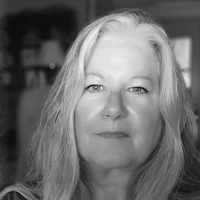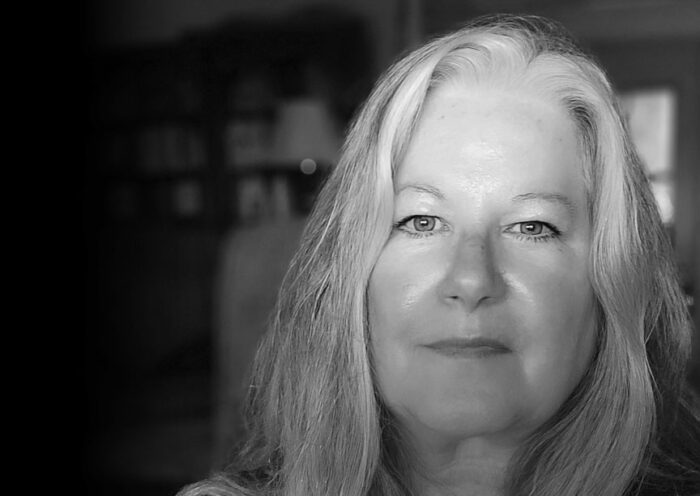The Arraghey Wander by Seven
by Ruth Heilgeist
Ar·rag·hey (Manx (v.) move, change, change course, digress, shift, remove, trim, dislodge, adjourn, (n.) motion, digression, maneuver, removal, mutation, adjournment, dislodgement, displacement).
My terrified run across a freshly plowed field, the earth exploding around me, is a frequent memory. Then I wonder why my father would shoot at my nine-year-old self.
Being plowed is one term for drunkenness. Besides describing tilled soil, the word is also used to describe a ponderous, plodding way of walking.
Drunkenness is a condition that can foster a tendency to walk carefully and slowly. I have been drunk a few times in my life. Brandy and I are no longer speaking.
My first foster family was my favorite. When I faked an illness, giving social services grounds to take me from my mother, I demanded a new family. And got the Brady Bunch, replete with three girls and three boys.
A favorite animal of mine is Doona. Under five pounds with no tail, Doona is a black cat who tends to remain elusive when I want to pick her up. But when she relents to be hugged, it feels like a reward.
Doona means dark maiden in the language of Manx, the native language on the Isle of Man, and is where the tailless Manx cat originated. A friend found Doona in her Virginia driveway, a tiny kitten a long way from her ancestral island.
The language of animals, and especially cats, has the same tonal value of human language. They speak of anxiety, want, anger and contentedness. My cats understand that books make me deaf, so one of them always jumps onto whatever I am reading.
Cats have always been a family member. I once had twenty-seven rescue cats residing on my farm. One day, I heard screeching above my head and saw a kitten clutched in the talons of a bald eagle. Poor baby. Mama couldn’t save you from that.
The member of my blue eyed, white stallion is often on display as he dances around his mares in the pasture. Even when the mares are not in estrus, Mykael feels obligated to remind them of his manhood. But, when he comes too close, they reward him with a kick to the chest. Like a player waiting for his turn off the bench, he waits.
White is supposed to be the color of sheep, but my Katahdin ewes are brown, black and tan. All four were to be lawn mowers to save me from the tyranny of grass. But, instead of munching grass, the girls decided the asparagus, Japanese plum and forsythia bushes were better eating. So they were fired from their day job and are doing the real work of mothering.
Color is a motivating factor in my life. Right down to my farm gates (hunter green), driveway gates (a subtle light gray) and my animals. Charcoal gray, Burmese white and black with green eyes are the cats. Blue merle and black tricolor are the dogs. And dun, dark bay, golden bay, chestnut, paint, palomino, and perlino white are the horses. But the ducks: all buff.
My central theme for farming is subsistence. But planting, watering, hoeing and weeding is arduously repetitive. No wonder farmers always kept a crop of children on hand to do the chores. I farm because I am a closet prepper and have memories of food insecurity. I should be thinner.
Subsistence living is akin to a prisoner lifestyle as the need to grow food imprisons me on my farm. A diverse crop is key to ensure enough vegetables for the year survive if weather or insects destroy some varieties. It’s a lot of work to live without grocery stores. No wonder fast food is popular. Less work.
A prisoner by choice, my vegetables and animals are my inmates. All look to me for care. Every morning I am a minor celebrity when I appear on the front porch, all animal eyes on me, waiting. Will I pick up the buckets first or load the hay cart or fill water tanks? I change it up just to keep them guessing.
The animals are my family, more honest than most humans and accepting of multiple hugs. Some let me sit next to them to meditate. Bugs, bees and wasps buzz around us as we zone out, listening to our breathing.
Honest reflection at times makes me desire less responsibility, to answer the urge to thru hike to see. Just see. This need for movement motivated my long-distance bike rides, marathon running and competing in endurance races of 50 miles or so on horseback.
Desire for a life of meaning awakens me every morning, along with my latest “why” question that needs an answer. My father, now eighty-nine, says he is waiting to die, when he can remember. Long after the incident, I asked him why he shot at me, my sisters and Mom when we ran from his rage all those years ago.
“I was trying to get you to stop.”
“Dad, people run away from gunfire.” He remained silent until I asked, “What does a deer do when you shoot at it?”
“Run.”
“And people?”
“I think it is going to rain today.”
BIO

Ruth Heilgeist is an MFA student at Lindenwood University and a volunteer tutor for an adult literacy program. Ruth writes about her life past and present. An avid opportunity-maker, Ruth’s experience ranges from paper girl, modeling, belly dancing, waitressing, actor, portrait artist, horse breeder/trainer, fraud investigator, endurance rider, marathon runner, voice over artist, mortgage underwriter, farmer, illustrator, bartender, equine sports massage therapist, cartoonist, writer and a receptionist for The School for Private Detectives. Ruth lives on her farm with seven horses who think she’s the bomb (but only when she feeds them), three cats who complain when she’s late and two Aussies training her to get up early. In the near future, Ruth hopes to survive tandem skydiving.



















This is stunning! I love the short paragraphs, the sometimes slant connections between them, the matter-of-factness. Really beautiful. Wants to be read again and again.